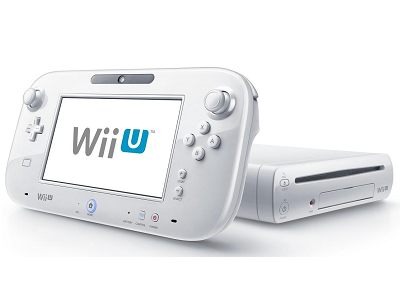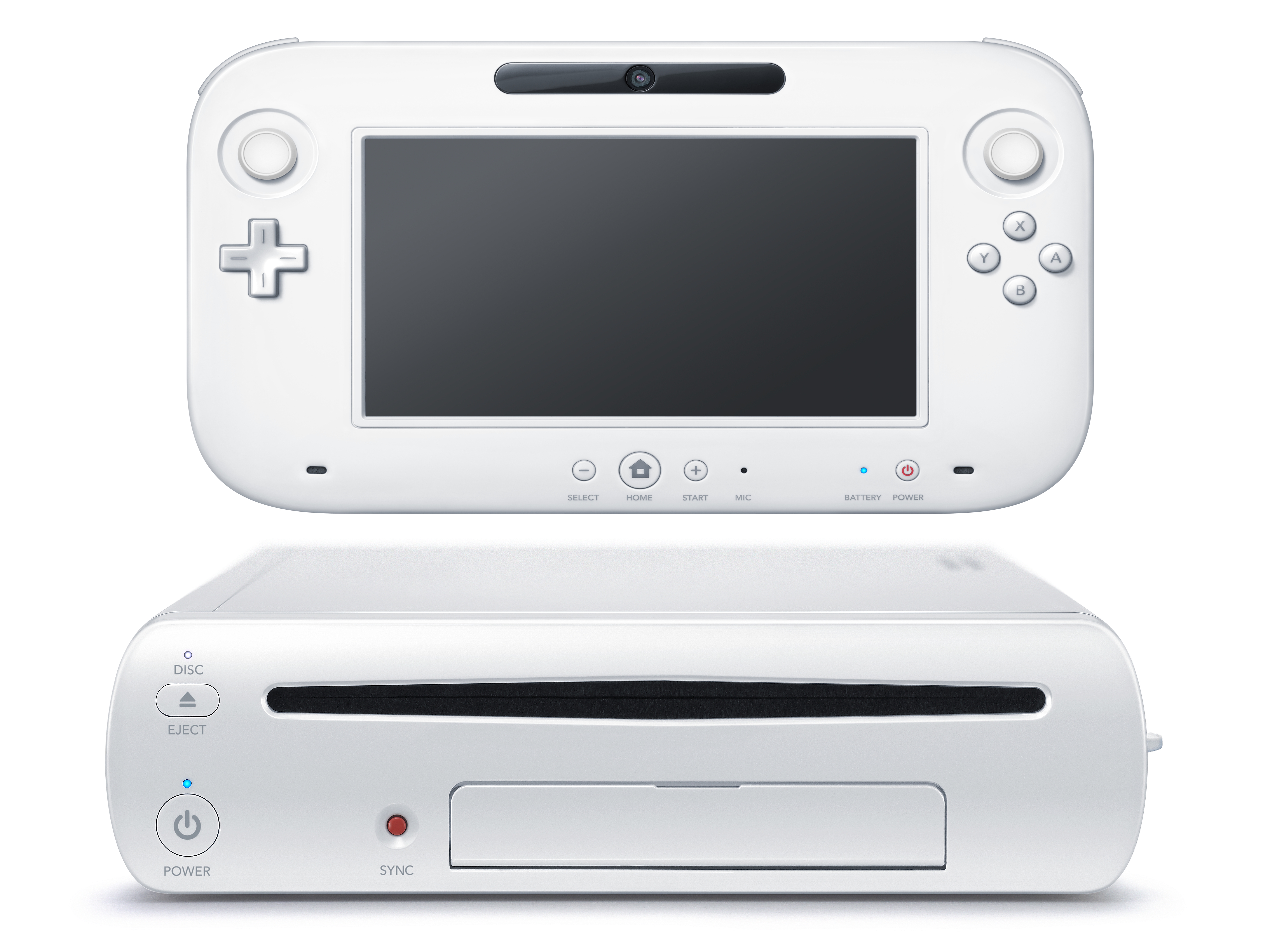Should You Buy a Wii U?
It's time to re-examine the Wii U's current features and prospects to answer the most important question about it: Should you buy one?


Nintendo's latest console has suffered from anemic sales and a software library to match since day one. More than a year after its launch, it's time to re-examine the Wii U's current features and future prospects, to answer the most important question about it: Should you buy one?
The Wii U ($300) had some leeway when it first released, since it was the only next-gen console on the market (leaving aside, for the moment, whether a system that's only slightly more powerful than the Xbox 360 and PS3 can really be considered "next-gen"). Now that the PlayStation 4 and Xbox One have hit the market, though, the Wii U has to stand toe-to-toe with two much newer systems.
MORE: 10 Best Kids' Video Games of 2013
Then there's the question of content. The Wii U plays host to a number of good games and innovative features, but it may not have enough to justify the relatively steep cost of entry — especially since its future prospects are hazy, at best.
Wii U games library
The primary function of a game console is to play games, and in this respect, the Wii U has both very much and very little to offer. There are a few standout titles on the console, but most of what the Wii U does well, the Xbox One and PS4 do well, too — as do the Xbox 360 and PS3.
While Metacritic, a site that aggregates media reviews, is not the last word in game quality, it's a good indicator of where critics and fans sit when it comes to major releases. While there are more than 40 games that garnered strong reviews (75 out of 100 or more), only 10 of them are Wii U exclusives. The rest are available on systems ranging from the PC to the 3DS.
MORE: Your Guide to Building a Gaming PC
Where the Wii U excels is in its high-quality exclusive titles. There's little argument that "Super Mario 3D World" is one of the better entries in the series, and "Lego City: Undercover" is a charming take on the open-world crime genre. "The Wonderful 101" provides a creative superhero romp, while "ZombiU" has enough intensity to please even jaded survival/horror fans.
MORE: 13 Scariest Video Games of All Time
The Wii U vs. other consoles
The problem is that unless you absolutely can't live without these games, you're probably better off with another platform. Yes, you can play "Assassin's Creed IV: Black Flag" on the Wii U, but you'll get better graphics and smoother animation on the Xbox One or PS4. The Wii U port of "Mass Effect 3" is fine, except you can't play the first two games in the series, and the story can change radically depending on your past decisions, which carry over to the final installment.
The Wii U's difficulty in attracting third-party developers is also something of a stumbling block. While Activision ("Call of Duty") and Ubisoft ("Assassin's Creed") are willing to play nice with Nintendo, many other major publishers are not. Neither Electronic Arts ("Battlefield") nor Bethesda ("The Elder Scrolls") want anything to do with the Wii U. Bethesda has even gone on record stating that it's "too late" for Nintendo to attract third party support.
The perception of the Wii as a kids' system has carried over to its successor as well. At best, some of the Wii U's top games still have a distinctively kiddie vibe. At worst, shovelware developers use it as a dumping ground for games they would never dream of attempting to foist off on adults.
The device is also backward-compatible with all Wii games (but not GameCube games, as the original Wii is). If you never bought a Wii, this could be a good chance to catch up, but the Wii itself was also rather limited when it came to exclusive titles — especially if flagship Nintendo franchises like "Mario," "Zelda" and "Smash Bros." aren't to your taste.
Today, the Wii U has the same problem it did when it first came out: It's not bereft of good games, but you need to have very specific tastes to get the most out of it.
Wii U as an entertainment center
Whereas both the Xbox One and the PlayStation 4 want to dominate the living room, the Wii U seems more content as a companion piece. The device offers an Internet browser and a rudimentary social network (you can make a digital avatar called a Mii and chat about games), but its real strengths are in its streaming video and second-screen (playing games on the controller instead of the TV) functionalities.
At first glance, the Wii U's video streaming selection is fairly simple: Netflix, Hulu Plus and Amazon Instant Video. This is everything the average consumer expects, and nothing that he or she doesn't. Where Nintendo sets itself apart is with its TVii app.
TVii allows users to search for TV shows, movies and sports across all three platforms, plus certain cable channels and DVR boxes (provided a user hooks up the Wii U via HDMI pass-through on the cable/DVR box). Users can set up individual profiles so that they'll know where to find their favorite shows.
Even if you don't subscribe to a service, TVii will still search its archives, so you can determine whether it's worth the money. For example, if you're a Netflix subscriber and want to watch a movie on Hulu Plus, the TVii will still find the show and let you know that you can subscribe to Hulu Plus to access it.
Nintendo also has deals in place with a number of different professional sports organizations, including the NFL and the MLB. Although you generally can't watch complete games, you can follow statistics in real time, right down to pitches and touchdowns as they happen. You can also catch clips after the game.
The Wii U's strongest feature is actually one that downplays it as a central living-room device: its second-screen functionality. Because of the Wii U's unusual, tabletlike controller, you can play just about any Wii U game on the controller, bypassing the TV entirely. This feature is extremely handy, whether you want to let your spouse watch something on TV or play for a while in bed before turning in.
The PlayStation 4 has a very similar (and arguably more robust) feature called Remote Play, but Remote Play requires a $200 PlayStation Vita handheld system in addition to a PS4. This puts the cost to play a PS4 game on a second screen somewhere around twice that of doing so on a Wii U. The Wii U controller also boasts a much bigger screen (6.2 inches diagonal) than the PS Vita (5 inches diagonal).
The future of Wii U
Admittedly, the future for the Wii U looks a little brighter than the present. Within the next year or so, gamers can look forward to "Bayonetta 2," a stylish and sexy Japanese action game; "Hyrule Warriors," a mash-up of "Dynasty Warriors" and "The Legend of Zelda"; and the next "Super Smash Bros." installment, in which Mega Man will finally make an appearance as a contender.
MORE: It's Dangerous to Go Alone: The History of 'The Legend of Zelda'
Although Nintendo has no immediate plans to expand the Wii U's video capabilities, its price is unlikely to remain as high as it is. Right now, a 32GB Wii U costs $270 by itself (don't bother with the 8GB Wii U; taking requisite system data into account, there's almost nothing left for games), while bundles with either "New Super Mario Bros. U" or "The Legend of Zelda: Wind Waker HD" cost $300.
Compared to the cost of both the Xbox One and the PS4, this may not sound like much, but the system capabilities and game selection are much closer to those offered by the Xbox 360 and the PS3, each of which costs about $200, or $250 bundled with hit games.
Much like Nintendo's successful 3DS handheld didn't really take off until a hefty price drop, Nintendo may slash the console's prices to eke out a new niche in the console market: a low-powered console with new games still being released for it. (Xbox 360 and PS3 game releases will slow to a crawl over the next year and eventually stop altogether.)
The question is the same now as it was a year ago: Does the prospect of a few good games and a decent selection of secondary services merit the asking price? The answer, as always, depends on the buyer.
Nintendo fans essentially have their hands tied; they'll need to pick up a Wii U sooner or later, or else miss out on the current crop of "Mario" titles and whatever comes next for "Zelda," "Metroid" and "Super Smash Bros." Parents or gamers looking for an entry-level console might be better served by grabbing an Xbox 360 or PS3 on the cheap.
The Wii U has been a stumbling block for Nintendo; even now, the company has to run ads reminding consumers that the Wii U is a whole new system, not just a tablet peripheral for the Wii.
Nintendo can only rely on its hardcore fans to take it so far; sooner or later, it will have to take drastic action to draw in a new audience, as the Wii did. If not, Nintendo could eventually disappear — unless it learns to embrace mobile platforms.
Follow Marshall Honorof @marshallhonorofand on Google+. Follow us @tomsguide, on Facebook and on Google+.
Sign up to get the BEST of Tom's Guide direct to your inbox.
Get instant access to breaking news, the hottest reviews, great deals and helpful tips.
Marshall Honorof is a senior editor for Tom's Guide, overseeing the site's coverage of gaming hardware and software. He comes from a science writing background, having studied paleomammalogy, biological anthropology, and the history of science and technology. After hours, you can find him practicing taekwondo or doing deep dives on classic sci-fi.
-
Bloob Unless you want the same old gameplay (just with better graphics) as offered by XBone and PS4, yes!Reply -
bigceebin4 Let me answer this for all of you that think you know. (I will give you my qualifications: I own a PS3, PS4, 360, Wii, and a Wii U). I will say this: THE WII U IS BY FAR THE BEST CONSOLE FOR THE MONEY/VALUE. IT's head and shoulders above the PS3 and 360, and if you know how to do things right you can turn it into a fantastic media center as well. I still play it more than my PS4. Its graphics are amazing, and it's gameplay is completely different. Once you incorporate all the aspects into it, it will low you away. Don't get me wrong, it cant touch the PS4 on a lot of levels, nothing can. But YES its well worth the money.Reply -
Warsaw At least you don't have to pay a subscription for services offered by the console, such as Xbox One or PS4. For that reason alone I look forward to purchasing a WiiU eventually. On the other hand I'm very offput purchasing a Xbox One and PS4 just for the fact of having to have a subscription to utilize some services. If we keep allowing these kinds of things to happen, it'll be a slippery slope.Reply -
magicandy ReplyRight now, a 32GB Wii U costs $270 by itself (don't bother with the 8GB Wii U; taking requisite system data into account, there's almost nothing left for games)
You're forgetting about the fact that the Wii U has an SD card slot. You can buy an 8 GB Wii U for $50 cheaper and get a 32 GB SD card for $20 and save some money. -
Jose Lagos Funny thing that all my Friends that bought a wii u and ps4 all they agree that wii u is the most played of the two and its really fun too, look for some Reviews you will see that a Lot of people is really satisfied with it specialy with the New Mario, Zelda WW, wonderful 101Reply -
Ghostbustar Man, I feel like some of these articles are written by people reading other articles and and then basing there opinions on that. I wonder if this writer actually has sat down with a wii u for even a day at minimum. This would certainly help to get hands on experience before writing his opinion to world. People we must not be sheep. try it out. Mario 3d world is on display to try at best buy or the source. Seeing videos on youtube is one thing. Playing the actual game is another. That game looks amazing. This 'rhetoric' that the wii u is only a little more powerful than the ps3 and xbox 360 really needs to stop. Its like a bad rumor that keeps spreading. Get your facts straight. Bad ports do not equal bad hardware. Nintendo went a different route with their hardware, but they are not stupid. Do you really think the company would put out hardware that would not be able to produce some powerful graphics. I have my wii u and I am very happy with it, and I am a gamer. 2014 is gonna be a great year for it.Reply -
SteelCity1981 drop the price to 199.99 and it will become a lot more attractive to the masses esp the ones on a budget. because as the price stands right now you can get a ps4 for an extra 100 bucks that is a lot more powerful.Reply -
Yuka Yes.Reply
I played with one and it really feels nice as a console. The control, being huge as it is, it's not uncomfortable and the "play on you controller" features is really, really nice. Specially when the Console is on a very demanded TV.
Games wise, Nintendo needs to step up with more 1st parties soon. Smash Bros will make the WiiU sell more indeed, but it needs more Zelda, Marios and Metroid. please oh please make a real good game for the Metroid franchise!
Cheers!

